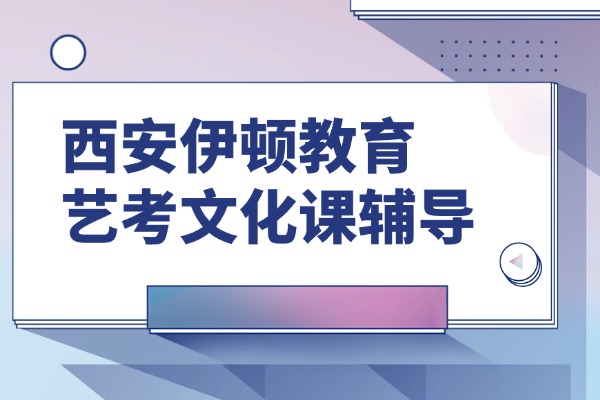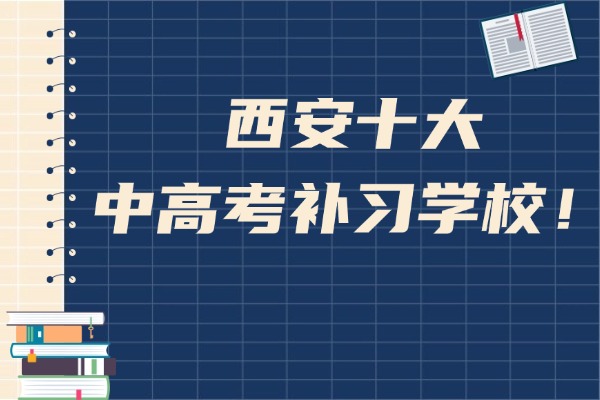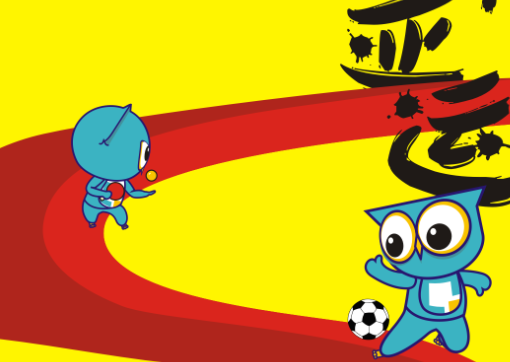模拟试题:高考英语听力训练(8.6)
宝子们,这一期的高考英语听力训练来啦,咱们可要抓紧时间训练啊,每天花个半小时,就能让听力能力进步一大半,所以一定要练习啊,就让我们来看看今天的听力训练试题。

试题
第一节 (共5小题;每小题1.5分,满分7.5分)
听下面5段对话。每段对话后有一个小题,从题中所给的A、B、C三个选项中选出最佳选项。听完每段对话后,你都有10秒钟的时间来回答有关小题和阅读下一小题。每段对话仅读一遍。
1. When will the play show?
A. On the 15th.
B. On the 16th.
C. On the 17th.
2. What kind of doctor did the woman probably see?
A. A heart doctor.
B. A skin doctor.
C. A dentist.
3. What does Lucy do on the Internet these days?
A. She looks for a job.
B. She chats with people.
C. She watches movies.
4. Where will the speakers go?
A. Their office.
B. A restaurant.
C. The city park.
5. When will the speakers get to the show?
A. At 10:00 a. m.
B. At 8:00 a. m.
C. At 7:30 a. m.
第二节 (共15小题;每小题1.5分,满分22.5分)
听下面5段对话或独白。每段对话或独白后有几个小题,从题中所给的A、B、C三个选项中选出最佳选项。听每段对话或独白前,你将有时间阅读各个小题,每小题5秒钟;听完后,各小题将给出5秒钟的作答时间。每段对话或独白读两遍。
听下面一段对话,回答第6和第7两个小题。
6. Why does the boy love Sundays?
A. He can play basketball.
B. He doesn’t go to school.
C. He can watch sports on TV.
7. What is the boy expected to do?
A. Clean his room.
B. Watch a TV show.
C. Have a good rest.
听下面一段对话,回答第8至第10三个小题。
8. How does the woman feel?
A. Disappointed.
B. Excited.
C. Calm.
9. What does the man think is valuable about the competition?
A. Its result.
B. Its process.
C. Its prize.
10. What will they do together?
A. Get prepared.
B. Tell a story.
C. Have a meal.
听下面一段对话,回答第11至13三个小题。
11. What does the man’s son like doing?
A. Playing bowling.
B. Collecting coins.
C. Collecting stamps.
12. What countries has the woman been to?
A. Canada and China.
B. Canada and Japan.
C. Mexico and China.
13. Why doesn’t the man have a hobby?
A. He is too busy to do that.
B. He has to work in the garden.
C. He can’t afford one.
听下面一段对话,回答第14至17四个小题。
14. What do the speakers mainly talk about?
A. The man’s challenge.
B. The capitals of Europe.
C. The great time in university.
15. How does the conversation probably take place?
A. Face to face.
B. Over the phone.
C. By a video call.
16. Which city does the man plan to go to next?
A. Berlin.
B. Amsterdam.
C. Lisbon.
17. How does the man sound?
A. Tired.
B. Mad.
C. Excited.
听下面一段独白,回答第18至20三个小题。
18. What is the speaker doing?
A. Giving a lesson.
B. Reporting a study.
C. Hosting a music program.
19. When did Bach compose many highly regarded organ pieces?
A. In the mid-18th century.
B. In the early 18th century.
C. In the late 17th century.
20. Why are Bach’s works still performed?
A. Complex tune mixing.
B. Easy to play.
C. Timeless quality.
听力原文
Text 1
M: Sue, I’ve just been told the date of the play has been changed from the 15th to the 16th.
W: Are you serious? Yesterday I was told it was going to be the 17th.
M: The 17th is a Sunday, so they changed it to a Saturday in the end.
Text 2
M: Julie, what did the doctor say?
W: He said I shouldn’t use the left side of my mouth for a few days.
M: Did he say there was anything you should do?
W: Yes, he told me to wash my mouth with warm salt water after every meal.
Text 3
M: I find Lucy often surfs the Internet these days. Is she chatting or watching movies?
W: No, she was fired last week. She is looking for a new job on the Internet.
Text 4
W: Let’s go to Figo’s. It’s good to have a rest after a day’s hard work in the office.
M: Figo’s? What is it?
W: It’s famous for its sandwiches. They’re the best in the town. The one across the city park, do you know?
M: Great. I’m starving.
Text 5
W: What time does the show start tomorrow?
M: It starts at 8:00 a. m. and lasts for two hours. But we should arrive 30 minutes earlier to get good seats.
W: Alright. I’ll see you then.
M: Great. See you!
Text 6
M: Do you know why I love Sundays, mom?
W: Sure, Joney. You don’t go to school today.
M: That’s true, but I don’t go to school on Saturdays either.
W: Then don’t tell me there are sports on TV all day.
M: You’re so right. No one knows me better, mom.
W: Oh, come on, don’t even think about it. You’ve promised to clean your room today.
M: I will, and all I need is only 30 minutes just to know who will win the basketball game, please.
W: All right, but not before you finish the cleaning.
Text 7
M: I heard you participated in the “Convey Chinese Voices and Tell Chinese Stories” competition. How’re you feeling?
W: Not so good. I tried really hard, but I didn’t win.
M: Don’t be too sad. You know, the process of preparing is also a valuable experience. You must have learned a lot.
W: But I really wanted to get an award.
M: Everyone has off days. Maybe it just wasn’t your time this time. But your efforts will bear fruit.
W: What do you mean?
M: You’ve improved your storytelling skills and learned more about our country. That’s a great achievement in itself. You’ll surely do better next time.
W: Thanks for cheering me up. I guess you’re right.
M: Of course. Now, let’s go grab a bite and forget about this for a while.
Text 8
W: Eric, what are your hobbies?
M: I don’t really have one. I suppose that bowling is the closest thing to a hobby that I have.
W: How about the other people in your family?
M: Well, my son likes collecting stamps and my wife has a garden. She spends an hour or so everyday working on it. How about you?
W: I have several hobbies but collecting coins is the one I like best. I have coins from almost every country. My favorite one is from China.
M: Have you ever been to China?
W: I want to someday. So far, I’VE been to Canada Mexico and Japan. Why don’t you have a real hobby? Are you lazy?
M: I like bowling, but it’s kind of expensive. The reason I don’t have a hobby is that I don’t have the time.
W: I understand. Being a traveling businessman is really harder than most people think.
Text 9
W: Good morning, Michael. I’ve been thinking about calling you. What’s going on over there?
M: Hi, Janet. We’re on the third day of our ten European capital cities in ten days challenge. It’s been a mad three days so far. It all began when we flew into the English capital London on Thursday afternoon. We had a quick look around and a good night’s sleep and the got on the morning train to Paris, the capital of France. The following day, we traveled to Brussels, the capital of Belgium and that’s where we are now enjoying breakfast.
W: And your plan is to visit seven more capitals in the next seven days? So are you headed Germany next?
M: Now we’ll travel to Berlin in Germany in two days time. Before that, It’s Amsterdam in a Netherlands. After Berlin we work our way through Europe ending in Portugal’s capital, Lisbon next week.
W: You were traveling with your friends from university right?
M: Yes, we are all having a great time.
W: What about we make a video call next time. I’m looking forward to seeing the views.
M: Of course, speak soon.
Text 10
W: Good morning, everyone! Last Friday, we learned about the brilliant Wolfgang Amadeus Mozart and his remarkable musical achievements. In today’s class, we’ll learn about another great composer, Johann Sebastian Bach. Bach was born in 1685. At a young age, he showed an outstanding talent for music. By the 1720s, he had already composed a significant number of works, including many organ pieces that were highly regarded. In 1749, near the end of his life, he was still creating masterpieces, such as the “Art of Fugue.” His music was not fully appreciated during his lifetime, but in the centuries that followed, his works became widely recognized and celebrated. Bach’s compositions, with their complex tune mixing and rich harmonies, had a deep influence on the development of Western music. They continue to be studied and performed today because of the timeless quality of his music.
参考答案
1—5 BCABC 6—10 CAABC
11—15 CBAAB 16—20 BCABC
有些学生的英语能力很差,想要进行一对一补课,可以选择西安伊顿教育一对一课程,它们会根据学生英语基础的强弱情况进行针对性辅导,帮助学生有效提升成绩。西安伊顿教育一对一课程咨询热线:
往期回顾:模拟试题:高考英语听力训练(8.5)
- 热门课程
- 热门资讯
- 热门资料
- 热门福利
-
 西安秦学伊顿的艺考文化课怎么样?艺考文化课提升指南艺考结束后,很多同学文化课基础弱、复习时间短,抓不住得分点,偏科问题突出,自学没方向,家长也跟着担心。不少西安的艺考生和家长都在问,西安秦学伊顿的艺考文化课到底怎么样,有没有靠谱的提升方法。今天,小编就跟大家好好聊聊! 西安秦学伊顿的艺考文化课怎么样? 西安秦学伊顿的艺考文化课总的来说还是非
西安秦学伊顿的艺考文化课怎么样?艺考文化课提升指南艺考结束后,很多同学文化课基础弱、复习时间短,抓不住得分点,偏科问题突出,自学没方向,家长也跟着担心。不少西安的艺考生和家长都在问,西安秦学伊顿的艺考文化课到底怎么样,有没有靠谱的提升方法。今天,小编就跟大家好好聊聊! 西安秦学伊顿的艺考文化课怎么样? 西安秦学伊顿的艺考文化课总的来说还是非 -
 西安伊顿教育有艺考文化课辅导吗?艺考生文化课复习全攻略艺考结束后,很多艺考生文化课基础薄弱、知识点落下太多,复习时间紧张,抓不住得分重点,自学也没有清晰思路,成绩提升慢,家长也跟着焦虑。不少西安的艺考生和家长都想知道,西安伊顿教育有没有艺考文化课辅导,也急需一份实用的艺考生文化课复习全攻略。接下来小编就为大家详细解答吧! 西安伊顿教育有艺考文化课
西安伊顿教育有艺考文化课辅导吗?艺考生文化课复习全攻略艺考结束后,很多艺考生文化课基础薄弱、知识点落下太多,复习时间紧张,抓不住得分重点,自学也没有清晰思路,成绩提升慢,家长也跟着焦虑。不少西安的艺考生和家长都想知道,西安伊顿教育有没有艺考文化课辅导,也急需一份实用的艺考生文化课复习全攻略。接下来小编就为大家详细解答吧! 西安伊顿教育有艺考文化课 -
 西安伊顿高考全日制课程怎么样?高考冲刺技巧高考冲刺阶段,很多学生复习没规划,抓不住考试重点,基础不扎实、偏科问题明显,自学效率低,做题没方法,成绩迟迟提不上去,家长也跟着着急。不少西安的高三学生和家长都想了解,西安伊顿高考全日制课程到底怎么样,今天小编就给大家来分享一下,以及高考冲刺的几个技巧,供大家参考! 西安伊顿高考全日制课程怎么
西安伊顿高考全日制课程怎么样?高考冲刺技巧高考冲刺阶段,很多学生复习没规划,抓不住考试重点,基础不扎实、偏科问题明显,自学效率低,做题没方法,成绩迟迟提不上去,家长也跟着着急。不少西安的高三学生和家长都想了解,西安伊顿高考全日制课程到底怎么样,今天小编就给大家来分享一下,以及高考冲刺的几个技巧,供大家参考! 西安伊顿高考全日制课程怎么 -
 西安十大中高考补习学校!中高考临近,很多孩子基础薄弱、复习没方向,成绩迟迟提不上来,家长想给孩子选靠谱的补习学校,却面对众多机构无从下手,还担心师资一般、管理松散、提分没效果。不少西安家长都迫切想知道,本地口碑好、实力强的中高考补习学校有哪些。今天就整理出西安十大中高考补习学校,帮大家清晰对比,选对机构助力孩子高效备考
西安十大中高考补习学校!中高考临近,很多孩子基础薄弱、复习没方向,成绩迟迟提不上来,家长想给孩子选靠谱的补习学校,却面对众多机构无从下手,还担心师资一般、管理松散、提分没效果。不少西安家长都迫切想知道,本地口碑好、实力强的中高考补习学校有哪些。今天就整理出西安十大中高考补习学校,帮大家清晰对比,选对机构助力孩子高效备考
-
 2023高考作文热点素材 ,《盛唐密盒》作文范文2023高考作文热点素材 ,《盛唐密盒》作文范文!最近有两个“人物”风靡全网。他们谈吐不凡,一位叫“房玄龄”,另一位叫“杜如晦”。这是继“不倒翁小姐姐”后,西安文旅打造的又一爆款节目《盛唐密盒》。为方便各位学生搜集素材,小编老师为大家整理了有关《盛唐密盒》作文范文,各位学生了解一下! 题目
2023高考作文热点素材 ,《盛唐密盒》作文范文2023高考作文热点素材 ,《盛唐密盒》作文范文!最近有两个“人物”风靡全网。他们谈吐不凡,一位叫“房玄龄”,另一位叫“杜如晦”。这是继“不倒翁小姐姐”后,西安文旅打造的又一爆款节目《盛唐密盒》。为方便各位学生搜集素材,小编老师为大家整理了有关《盛唐密盒》作文范文,各位学生了解一下! 题目 -
 高考作文素材,《隐入尘烟》金句、时评、作文题《隐入尘烟》豆瓣评分8.5分,今年国产片中最高分,年内应该很难有出其右者。影片讲述了在西北农村,一对底层夫妇艰辛而温馨的生命旅程,他们用简单的相守和朴拙的告白,印证彼此的心意,演绎别样的浪漫与温情。下面小编老师为大家整理了《隐入尘烟》金句、时评、作文题,大家参考一下! 作文标题 如果你写一篇
高考作文素材,《隐入尘烟》金句、时评、作文题《隐入尘烟》豆瓣评分8.5分,今年国产片中最高分,年内应该很难有出其右者。影片讲述了在西北农村,一对底层夫妇艰辛而温馨的生命旅程,他们用简单的相守和朴拙的告白,印证彼此的心意,演绎别样的浪漫与温情。下面小编老师为大家整理了《隐入尘烟》金句、时评、作文题,大家参考一下! 作文标题 如果你写一篇 -
 初中学生和高中学生学习有什么差异?各位学生现在很快就要到九月,又会有一大批的学生将要步入高中。最近不少的学生问老师,初中学生和高中学生学习有什么差异?初中的学习不管是在学习方法还是在思维方式上都有差别。为方便各位学生能够更好的融入高中学习,小编老师为大家整理了初中学生和高中学生学习的相关差异,大家了解一下! 初中学生和高中学生
初中学生和高中学生学习有什么差异?各位学生现在很快就要到九月,又会有一大批的学生将要步入高中。最近不少的学生问老师,初中学生和高中学生学习有什么差异?初中的学习不管是在学习方法还是在思维方式上都有差别。为方便各位学生能够更好的融入高中学习,小编老师为大家整理了初中学生和高中学生学习的相关差异,大家了解一下! 初中学生和高中学生 -
 高中数学为什么比较难?各位学生在高中学习的这几门课程中大家觉得哪一科比较难呢?很多学生都反应数学比较难学,想知道高中数学难在哪里。为方便各位学生了解,小编老师为大家整理了有关新高考数学的相关信息,大家可以了解一下!更多有关学习方面的问题大家也可以咨询在线老师! 高中数学为什么比较难? 初中数学知识少、浅、难度容易
高中数学为什么比较难?各位学生在高中学习的这几门课程中大家觉得哪一科比较难呢?很多学生都反应数学比较难学,想知道高中数学难在哪里。为方便各位学生了解,小编老师为大家整理了有关新高考数学的相关信息,大家可以了解一下!更多有关学习方面的问题大家也可以咨询在线老师! 高中数学为什么比较难? 初中数学知识少、浅、难度容易


















 All right reserved
All right reserved
